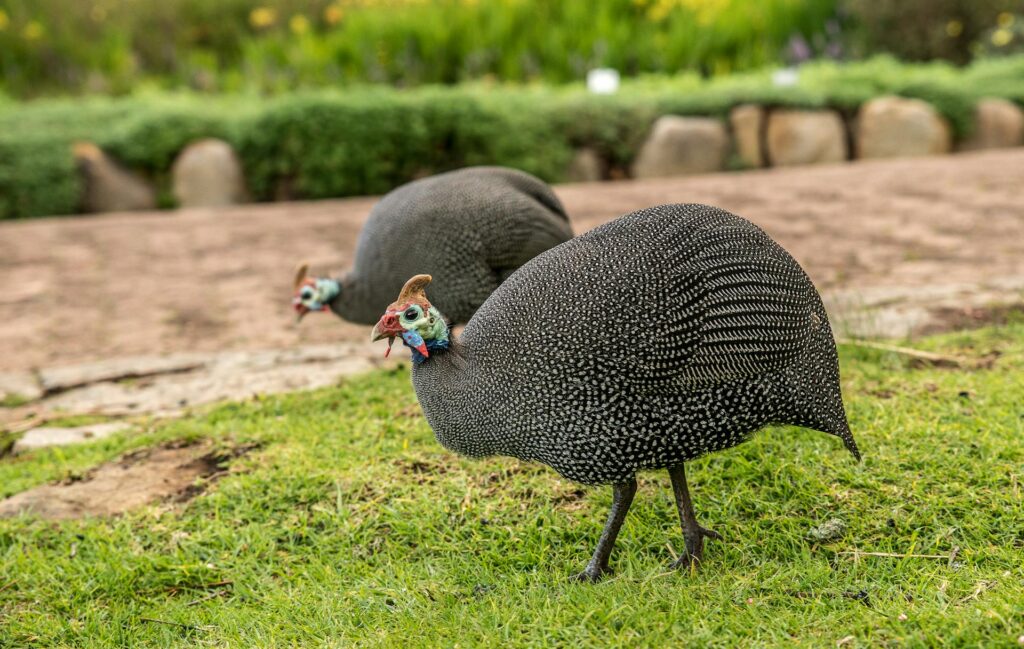More than one-third of all women and girls in Zambia have experienced physical violence in their lives, and 17% of these women have experienced sexual violence. This is an issue that plagues the country, but somehow director-writer Rungano Nyoni has figured out how to tell such a dark tale with humor interlaced in it for her latest project On Becoming a Guinea Fowl, which reached theaters overseas earlier this month and is set to release in the United States on March 7, 2025.
Nyoni has created a cocktail mix of many genres with her latest release. It could be considered dark humor, drama, science fiction and artsy. There are even some historical moments throughout the film, including observations of traditional Zambian funerals. In the night and with an eye-catching glimpse of the moon, parts of the film feel like screenshots of paintings. If no showtimes are scheduled in your city, you’ll soon be able to catch the film on Apple TV. For those who want to dive into the story ahead of its theatrical release, beware of spoilers ahead. On Becoming a Guinea Fowl‘s primary themes focus on sexual trauma, specifically within families, so it might not be suitable for all audiences.
What Is ‘On Becoming a Guinea Fowl’ About?
On an empty road in the middle of the night, Shula (played by Susan Chardy) is driving home in a full-on Missy Elliott from “The Rain (Supa Dupa Fly)” costume when she spots a man on the side of the road. Instead of thinking this is some kind of Halloween prank, she gets closer to see who this figure is. Upon closer look, she realizes this is the body of her Uncle Fred (Roy Chisha). After calling her father to find out what to do next, he reveals his character by asking for her rent money and how she’ll pay for his taxi to get to her.
When funeral proceedings begin, she and her cousins bring up long-buried secrets from their middle-class Zambian family about their uncle’s perverted past. Some of the women and men (including Shula’s uncles) have a “leave the past in the past” motto while others (mainly the nieces and younger, female family members) are still seething at Uncle Fred’s sexual violence against women. It’s even harder for the family to act like this didn’t happen, specifically considering the predator married one of the children he raped and impregnated her with multiple children.
Guinea Fowl Symbolism Explained

These African birds consist of seven to 10 species and are considered the watchdog on farms. When they’re (easily) alarmed, they will run and can fly on short, rounded wings for a short distance. It’s very common to hear them gabble loudly from fright. Helmet guinea fowl are noisy birds who can be a nuisance with their harsh, repetitive calls. The irony in the name of this film is while these birds are so loud, so many family members are silent when hearing about the abuse and dangers within their own homes.
What Happens at the End of ‘On Becoming a Guinea Fowl’?
If you’re looking for an ending wrapped up like a Christmas gift with a nice neat bow, you’re about to be disappointed. In the U.S., only 310 out of every 1,000 sexual assaults are reported to the police. In Zambia, the most frequently reported cases have been defilement of a child, which has been consistently higher than any other type of sexual offense since 2006. As is the case with far too many stories of sexual assault and rape, justice doesn’t unfold for Nyoni’s characters.
With so many family members in denial, downing liquor to hide pain (as seen through Nsansa, played by Elizabeth Chisela) and using humor as a defense mechanism, their own issues can sometimes outshine the fact that Uncle Fred doesn’t quite come across as the monster some moviegoers may want him to be. Even when Shula is looking for Bupe (Esther Singini), the men in her family are far more interested in women making them a plate. It doesn’t take long to figure out that the sexism in this family is almost as strong as the obliviousness.
Even the involuntary widow doesn’t get the justice she deserves from no longer having to deal with Uncle Fred. With multiple family members plotting on his estate, she now has to figure out how to get financial support for her immediate family. In a society where Uncle Fred’s behavior is disturbingly normal and a family that isn’t doing all that much to avoid it from happening again, the ending may (hopefully) make viewers reflect on how they can make changes within their own social circles.
